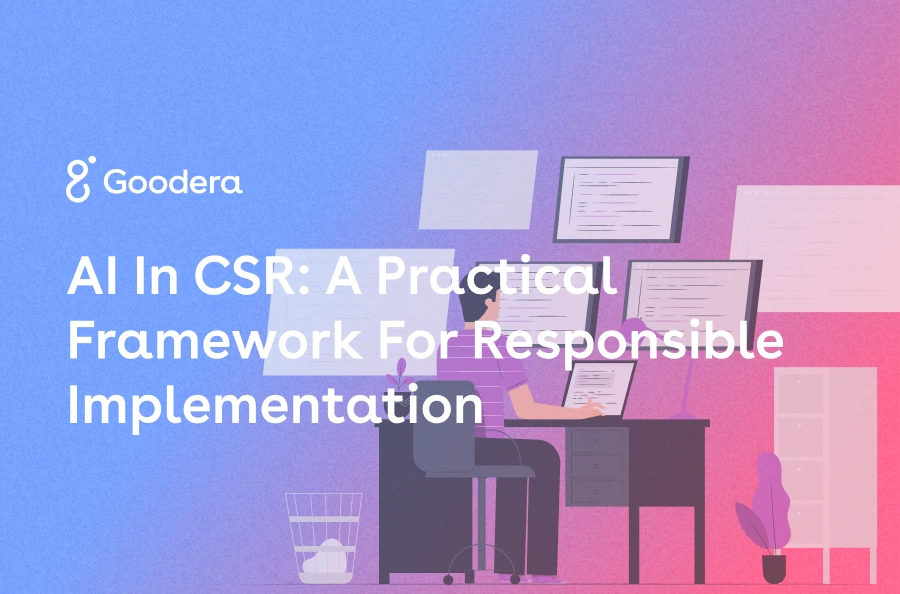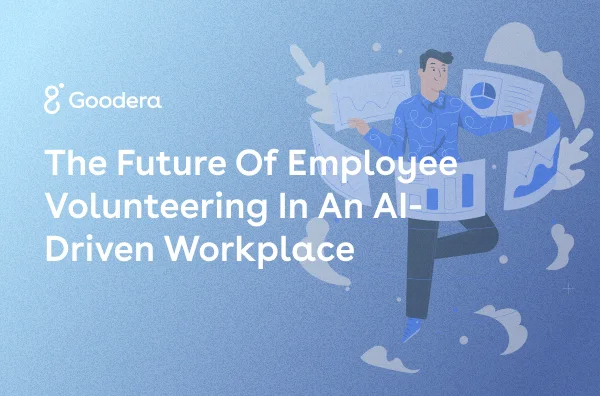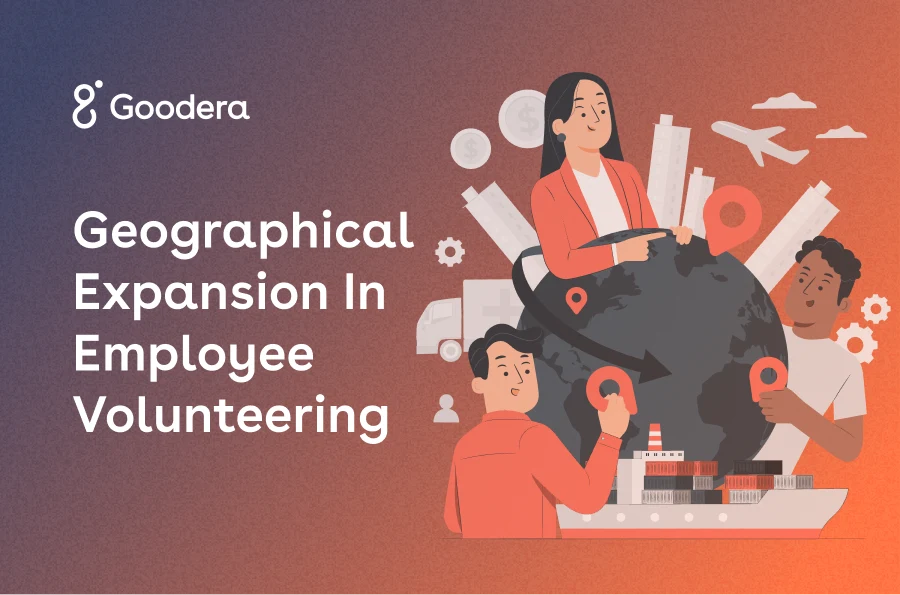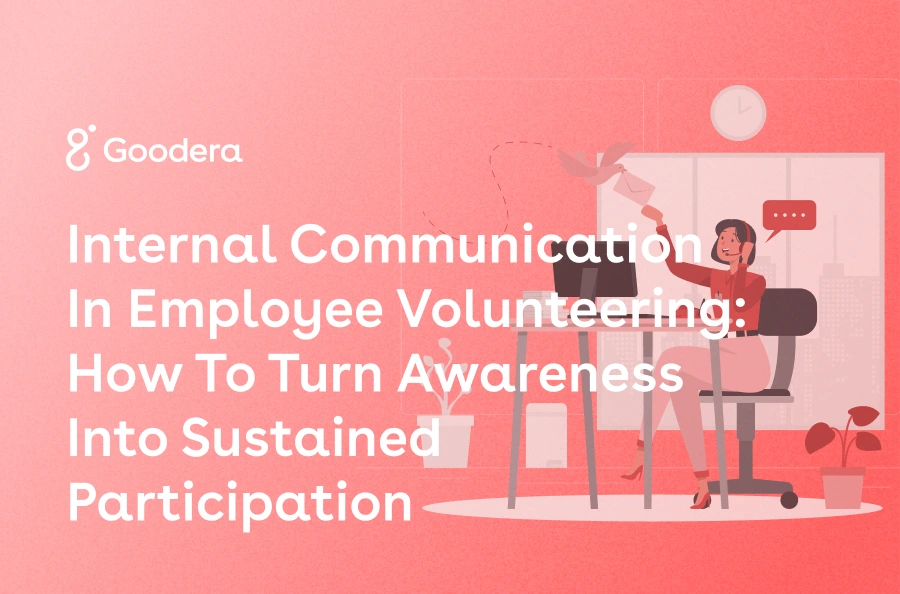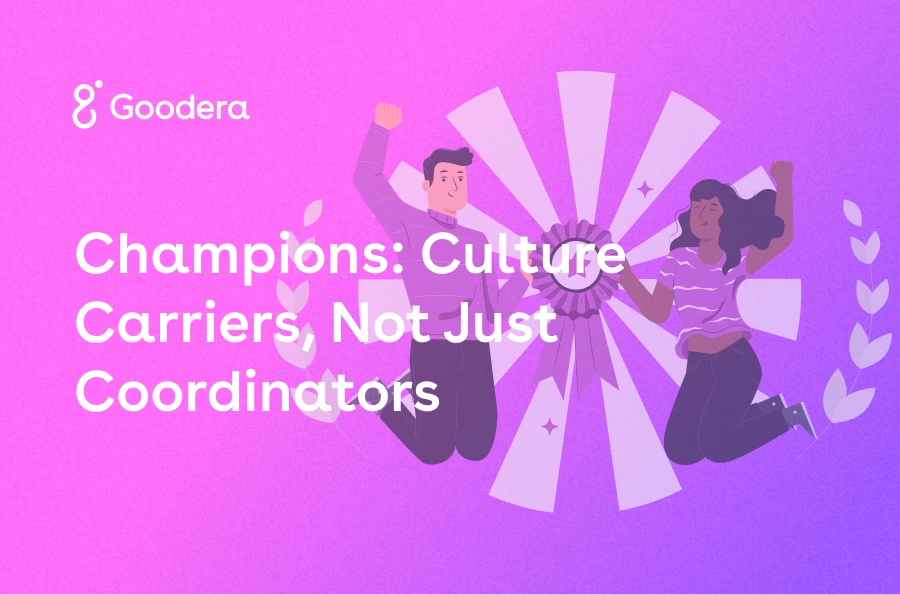Goodera Becomes the First Social Impact Company To Launch MCP Server Bringing Real-Time Volunteering Insights to AI Agents
How the social impact world is stepping into the AI era—securely and meaningfully.
While AI has become a core part of how many teams work, like finance, HR, and marketing, it’s just starting to reach CSR and nonprofit teams.
At Goodera, we’ve launched something we’re really excited about: the MCP Server. It allows MCP-compatible AI agents within a customer’s environment to securely access real-time volunteering and impact data, making it easier for teams to plan, report, and take action with just a prompt.
This move brings AI-powered insight and support to the world of volunteering and nonprofit work, and opens the door to a new way of working with impact data.
What is MCP, and Why Does It Matter?
The Model Context Protocol (MCP) is an open standard that allows AI agents to interact with backend systems. It supports two-way communication, meaning AI models can request information, receive live responses, and even start tasks based on that data.
Most AI agents until now could only access static data or rely on limited plug-ins. MCP creates a secure, flexible link between AI and live enterprise data without compromising privacy.
Companies like Microsoft, Atlassian, PayPal and many more have already adopted MCP for real-time use cases in payments, developer tools, and productivity apps. Goodera is the first to apply this approach to social impact.
How Goodera's MCP Server Works
Goodera's MCP Server acts as a secure bridge between its impact data and AI agents. This allows AI to:
- Pull live data about volunteering programs, nonprofit partnerships, employee engagement, and impact metrics
- Generate content and suggestions
- Send updates through Slack and Teams
- Add data to dashboards and tools like Tableau
The data comes from 50,000+ nonprofit partners, 25,000+ events to enable 2M+ volunteers, and over 1,000 cities, and is updated regularly.
Everything is designed with enterprise-grade security. No personally identifiable information (PII) is exposed, and every query is traceable for compliance.
Use Cases for Social Impact Teams and Enterprises
1. Instant, Custom Impact Reports for Leadership
Problem: CSR managers often spend hours compiling quarterly reports using data from multiple systems.
With MCP: AI can consolidate Goodera’s structured impact data and respond to prompts like: “Generate a report of volunteering hours, participation rate, and top-performing activities for Q2.” The response includes visual summaries, event-wise breakdowns, and performance benchmarks. The report can be exported as a PowerPoint or PDF, or pushed directly into Slack or email.
Impact:
- Saves hours of manual work for program managers
- Enables on-demand, accurate reporting at any time
- Helps CSR get a seat at the table by showing up with real-time, data-backed insights
2. Activity Recommendations Based on Region and Employee Interests
Problem: Choosing relevant activities for diverse teams is difficult. What works in one region or department may fall flat in another.
With MCP: Teams can prompt: “Suggest three volunteering activities that finance teams in Bangalore have rated highly in the last 6 months.” The AI considers participation data, event feedback, and historical trends to surface activities and nonprofits that are a strong cultural and logistical fit.
Impact:
- Drives higher employee engagement and satisfaction
- Reduces guesswork in program planning
- Ensures localization in global programs
3. Planning a Global Volunteering Campaign
Problem: Running a multi-country campaign requires navigating different time zones, local regulations, and cultural nuances—all with limited bandwidth.
With MCP: Teams can prompt AI with: “Plan a volunteering campaign for Mental Health Awareness Month across US, UK, Germany, and India.” The AI returns:
- Recommended activities per country based on previous success
- A rollout timeline that accounts for local holidays
- A list of verified nonprofit partners by geography
- Pre-drafted promotional content for internal comms and social media
Impact:
- Cuts planning time drastically
- Enables a lean CSR team to scale global campaigns
- Improves cultural relevance and localization
4. Flagging Underperforming Initiatives
Problem: Teams often realize too late that certain programs are underperforming, affecting volunteer morale and impact.
With MCP: The AI monitors ongoing events and can respond to prompts like: “Which events last quarter had below-average attendance and poor feedback?” It flags low-performing formats or nonprofits, compares them against similar events, and suggests fixes (e.g., different timeslot, clearer goals, alternate format).
Impact:
- Prevents repeated mistakes
- Enables real-time course correction
- Increases ROI of volunteering efforts
5. Feeding Real-Time Data into Internal Dashboards
Problem: CSR data often sits in siloed systems and is not integrated into enterprise dashboards used by leadership.
With MCP: Structured data from Goodera flows directly into Tableau, Power BI, or internal data lakes. Prompts like “Show a weekly updated volunteer hours by region chart” can automatically update internal dashboards.
Impact:
- Makes CSR metrics part of business-as-usual reporting
- Aligns social impact goals with broader business KPIs
- Improves visibility of CSR contributions
6. Faster Content Creation for Campaigns and Events
Problem: CSR teams spend too much time writing event invites, thank-you notes, and social content.
With MCP: Prompts like “Create a LinkedIn post for our Earth Day event in Atlanta” generate content using live participation data, feedback, and outcome metrics. The output includes tone-matched copy, editable templates, and visual suggestions.
Impact:
- Reduces dependency on marketing or comms
- Helps teams tell powerful stories faster
- Improves timeliness and reach of CSR communications
What It Means for Nonprofit Organizations
1. Benchmarking Against Peer Organizations
Problem: Most nonprofits don’t know how their engagement compares to others in the ecosystem.
With MCP: A prompt like “Compare our volunteer retention rate to other education-focused nonprofits in California” returns anonymized data and recommendations for improvement.
Impact:
- Offers context to performance data
- Helps nonprofits adapt strategies based on ecosystem trends
- Builds confidence for funding pitches or partnership renewals
2. Designing Programs That Attract Corporate Volunteers
Problem: Nonprofits often create programs without insight into what companies are looking for.
With MCP: A prompt like “Which activity types have the highest repeat engagement from corporate teams in Q1?” reveals popular formats and partner preferences.
Impact:
- Improves program design
- Aligns nonprofit offerings with market demand
- Increases chances of repeat partnerships
3. Discovering New Opportunities to Support Beneficiaries
Problem: Field teams may not have visibility into broader regional needs.
With MCP: A prompt like “Where is demand for digital literacy programs increasing the most?” reveals underserved regions based on event data and community inputs.
Impact:
- Enables timely interventions
- Ensures programs are data-informed and responsive
- Improves equitable resource allocation
4. Automated Reporting for Donors and Stakeholders
Problem: Impact reports for donors take time and pull staff away from on-ground work.
With MCP: Nonprofits can ask: “Generate a donor report for our July volunteering event with summary, feedback, and outcomes.” The AI compiles this in seconds, complete with visuals.
Impact:
- Improves donor trust and transparency
- Reduces reporting workload
- Enables more consistent communication
5. Enhancing Visibility Within the Ecosystem
Problem: Nonprofits struggle to stand out among thousands of partners.
With MCP: AI agents can promote high-performing nonprofits by surfacing them in enterprise-facing dashboards or event suggestions.
Impact:
- Increases discoverability for nonprofits
- Rewards good performance with more visibility
- Enables a merit-based approach to matchmaking
6. Faster Content Creation for Fundraising and Awareness
Problem: Communications staff are stretched thin and storytelling often takes a backseat.
With MCP: A prompt like “Write a donor update about our women’s health workshop this week” yields a data-backed narrative with suggested visuals and formatting.
Impact:
- Increases storytelling frequency
- Helps nonprofits engage supporters without overextending internal resources
- Strengthens brand and mission alignment
The Road Ahead
Goodera’s MCP Server marks a turning point for how AI and social good intersect. It moves the space beyond spreadsheets and dashboards, toward a future where insights, planning, and action can all happen from a simple prompt.
And it’s not a one-off experiment. As MCP becomes an industry standard, more systems will plug into this ecosystem—HR tools, DEI platforms, compliance systems, and more.
By making its data accessible through this standard, Goodera ensures that social impact teams are no longer left behind in the AI wave.






